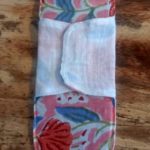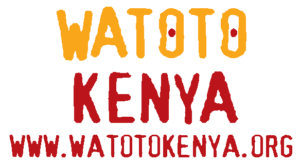Direct Beneficiaries:
800 girls receive dignity kits
1000 girls between 11 and 18 sensitized and informed
1,000 young people aged between 11 and 18 sensitized and informed
Indirect Beneficiaries:
2000 sensitized and informed families
5,000 people informed about the project and gender issues
Project summary:
The Dignity for girls project – tailor made solution – stems from a request received from rural public schools in Kilifi County following the experience gained in recent years thanks to the Dignity Kit project financed by the FAI Foundation and the interest of the community for the Life skills of the Kulisha Kwa Maisha project held at the Gandini Primary School.
This project was conceived with a human centered approach in 2017 following the Design Thinking model. The product itself but also the distribution methodology and related activities have been tested, re-evaluated and adapted from year to year to achieve increasingly better results both from the point of view of production and from the point of view of information and awareness of the beneficiaries and the impact on them (scholastic performance, absences and approach to life).
The Dignity for Girls project has three main components:
• elimination of gender inequalities by supporting the right to education of girls between the ages of 11 and 18 (component 1),
• 4 life skills sessions and 4 radio talks focused on information and awareness on reproductive health, menstrual hygiene, girls empowerment and intelligence/emotional maturity and advocacy for gender equality (component 2),
• the promotion of a small local entrepreneurial activity with a sustainable social and environmental impact, through the production of 800 kits for managing the menstrual cycle (component 3).
On the basis of the project financed by the FAI foundation, the schools were selected together with the reference official of the Malanga area, in the sub-county of Malindi on the basis of the project indicators: school absences, cases of early teenage pregnancy and academic results.
With the support of the local administration and the school management of 8 target schools, 4 Life Skills meetings are planned to strengthen the concept of dignity of girls and the ability to make decisions about their lives and their future. Life Skills sessions will also focus on
• awareness of personal hygiene, reproductive and sexual health education (MHM – Menstrual Hygiene Management),
• girls empowerment
• gender issues
• on maturity and emotional intelligence.
At the same time we also work on children and boys with 4 Life Skills sessions aimed not only at respecting the female gender but at the same issues of
• goal setting,
• decision making,
• reproductive health,
• sentimental education,
• positive and negative relationships,
• values, emotional intelligence.
From the experience gained in the last two years we believe it is important when it comes to girls empowerment not to forget about boys and their sentimental and relational empowerment.
The dignity kits will be shown at the end of the second meeting, explaining how to use and wash them, the cost savings as well as the environmental benefit of using washable pads. The Kit has a duration of 3 years and is an eco-sustainable solidarity product entirely produced on site.
The Dignity Kits provide for a symbolic participatory donation (50 KES or 0.50 Euros) which will be donated to the school for the purchase of books.
They will not be distributed until the third session and after the contribution has been collected by the teacher identified by the school management.
This methodology has found enormous results and great success precisely because only those who are really interested will proceed with the purchase, avoiding waste and guaranteeing the kit to those who really need it.
The Kits are an eco-sustainable and supportive choice, produced by the social tailoring project of Watoto Kenya Trust and local entrepreneur tailors, sponsored and trained by Watoto Kenya Trust; this format was born from a social development project 15 years ago.
4 talks on a local radio will serve to advocate on project issues and activities. In the rural areas where the project is being implemented, the radio is the primary information and entertainment tool.
In the 4 talks it will be possible to present the project and the funder, gender equality and the importance of equipping adolescents with all the necessary tools to face adult life and contribute to a better and sustainable future.



